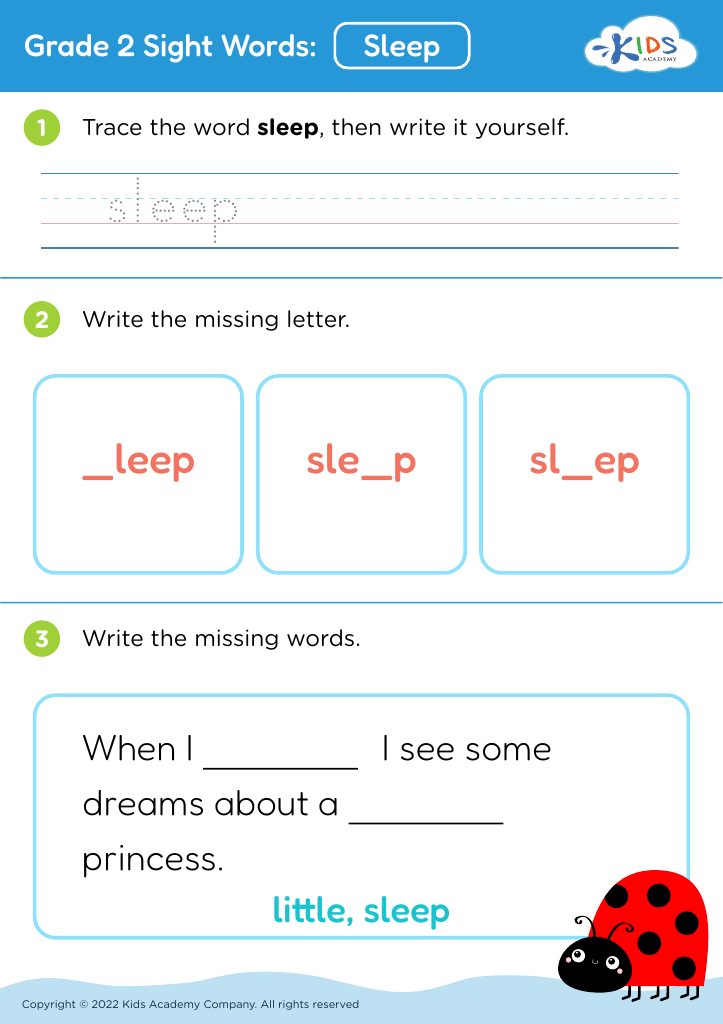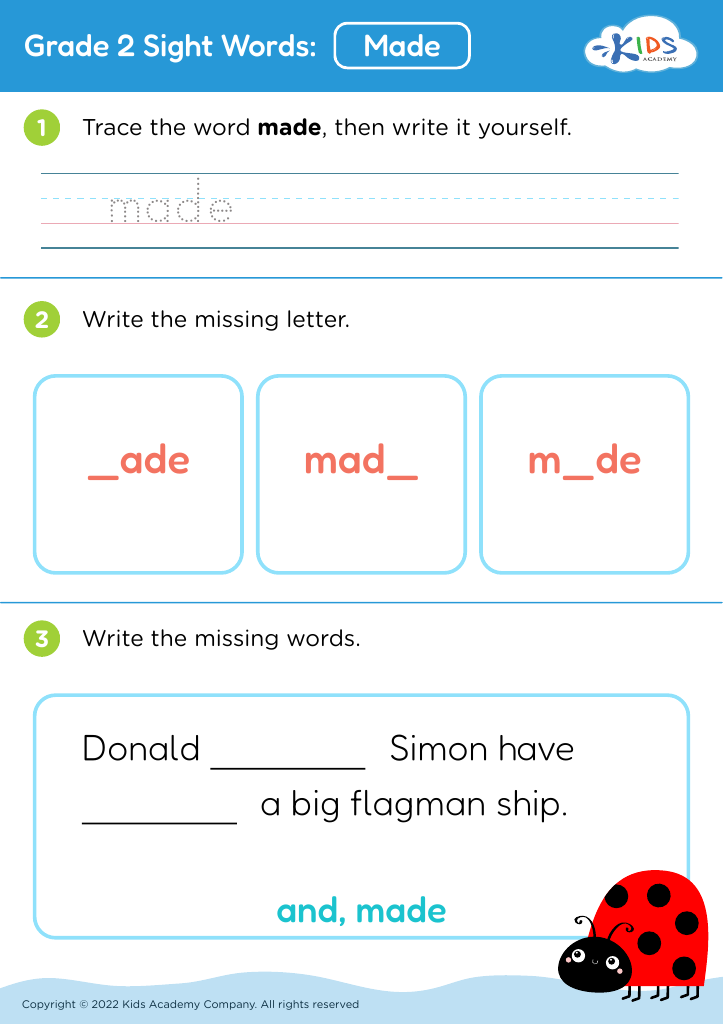Identifying shapes Building Vocabulary Worksheets for 8-Year-Olds
3 filtered results
-
From - To
Enhance your child’s vocabulary and shape recognition with our "Identifying Shapes Vocabulary Worksheets" designed for 8-year-olds. These engaging and interactive resources help young learners develop crucial language skills while understanding various geometric shapes. Each worksheet features fun activities that integrate shape identification with age-appropriate vocabulary exercises. Perfect for classroom use or home learning, our worksheets encourage creativity and critical thinking. By completing these exercises, children will expand their vocabulary while reinforcing their understanding of shapes in a playful and educational environment. Empower your child’s learning journey and watch them thrive as they discover the world of shapes and words!
Identifying shapes and building vocabulary are crucial developmental milestones for 8-year-olds that significantly enhance their learning and cognitive skills. Understanding shapes helps children recognize patterns and structures in their environment, laying the foundation for later learning in subjects like mathematics, geometry, and even science. As they learn to identify and categorize shapes, they enhance their analytical skills, which is essential for problem-solving in academics.
Building vocabulary around shapes and geometry fosters effective communication. When children learn to articulate their thoughts about shapes—using terms like "pentagon," "symmetry," or "angles"—they not only improve their language skills but also prepare themselves for more complex concepts in the future. A rich vocabulary empowers children to explain ideas clearly, ask questions, and share insights, fostering positive social interactions and boosting confidence.
Furthermore, engaging in activities related to shapes and vocabulary can make learning fun and interactive, sparking curiosity and enthusiasm for exploration. For parents and teachers, nurturing these skills in children is vital as they contribute to overall educational success. By supporting this development, adults can help cultivate well-rounded individuals who thrive in learning environments, ultimately leading to better academic outcomes and a lifelong love for learning.


















